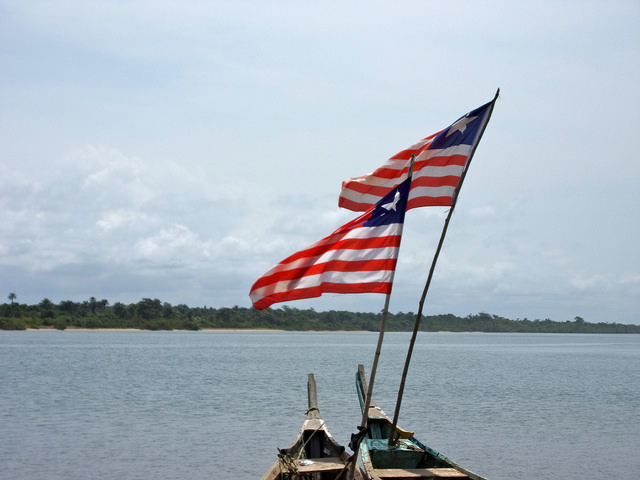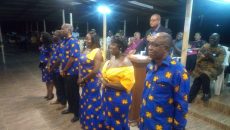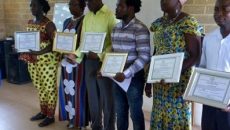MONROVIA, Montserrado – The national orator of the 2017 Independence Day celebrations, Herman Browne, has frowned on the media in Liberia for being too susceptible to propaganda.
Browne, who runs Cuttington University, said on Wednesday that except for a few newspapers, the media is mostly tabloid. He said ill-informed assumptions far too often form the basis for public discussions that are transmitted directly into homes.
“For example, one cannot go up and down this country and take the view that nothing has changed, and mean it, and expect thinking people to take you seriously,†he said.
“Worst still, a talk show host might likely to take this proposition for an hour’s discussion: ‘Nothing has changed. Are you for or against?’ – and then open the phone lines.â€
He challenged media institutions to do better if they must better play their educational role.
“Our analyses of public issues and events are often far too thin. Our perspectives are not diverse and often oversimplified; our interlocutors too few, and often [their] grasp of various historical, economic or political trends [are] unhelpfully minimal,†he also said.
“I apologize if this seems hard on this sector of our civil life, but the media’s role in sustaining the peace is serious business, and far too important for us not to understand that when we read the papers, tune in to our radios, watch television, or endure talk shows. Much more is expected from it than what we now receive.â€
Phillip Wesseh, the publisher of the Inquirer newspaper, said the issues raised against the media are just and reasonable.
Appearing on a Truth FM Talk show on Thursday, Wesseh wants the media, especially the Press Union of Liberia, to accept the criticism and find a way to improve on areas that were highlighted by the orator.
“We can’t deny that. The fact of the matter is that politicians own radio stations,†he said.
Wesseh said working for a privately-owned media institution should not, however, be an excuse for anyone in the media to ethically transgress, knowing that the media has an important role to play in maintaining peace.
Browne did not only criticize the media. The national orator also addressed the role individual citizens had to play in elevating the political discourse in the current electoral period.
He encouraged citizens to ask not for a candidate’s plans to transform the country if he or she wins. Rather, he said they should ask about what the candidate plans to do if he or she fails.
“Is it not obvious, in fact statistically absolute, that there will be more in the latter category than in the former? Should the hope that one will be part of the victorious 5 percent preclude a discussion of what the defeated 95 percent plans for our country?†he asked.
He called on politicians to align their interest to the “common good†of the country, noting that personal interests can sometimes become a national liability.
According to him, politicians most often allow their personal interest of getting elected surpass their common interest of keeping the country united.
He frowned upon politicians who he said were using ethnicity to shore up their support base. He said the strategy is a well-known short-sighted tactic that undermines the country’s unity and “the very oneness†on which politicians will depend once they are elected.
“Don’t fall for it. My fellow countrymen, this must stop,†Browne said. “It does not further our country’s cause: our search for a united, peaceful, and reconciled people.â€
He said citizens should not constantly speak of wanting reconciliation, and at such moments, for personal gains, take concrete steps to undermine it.
“This deep social practice of organized forgetting has such egregious political consequences that it must rightly be met with an ‘organized remembering’ in the writing of our common history,” he said. “We have had a bitter past. Made past mistakes and reaped bitter consequences for them.â€
Meanwhile, the Independence Day orator has called for the establishment of training centers for specialized skills to strengthen peace. He pointed out that of the more than 1,000 universities in Africa, none are among the top 100 worldwide, while only eight African universities are in the top 300 worldwide; 4 in Egypt and 4 in South Africa.
He said, particularly at the secondary level, least to say the tertiary level, students in Liberia still require a good deal of attention to be given to their reading and writing skills, their analytical and lateral thinking skills. The country’s graduate programs still need a lot of work to be truly competitive, he added.
“If quality is what we seek, then resources are what we need,†he noted. “Not just to attract quality staff, but to produce them.â€
At Cuttington University where he presides, fees are not likely to remain the same year after year if adequate support is not forthcoming from sources other than student fees.
Meanwhile, President Ellen Johnson Sirleaf has called on Liberians to keenly listen to and reflect on the speech.
“If Liberians are interested in changing or re-directing the course of the Liberian society, from the worst to the old good days when everything proceeded in line with societal norms, they should listen and reflect on the oration,†she said.
Wednesday’s ceremony at the Executive marked the official observance of the country’s 170th independence anniversary, since 1847. The ceremony began with the shooting of the cannon and hoisting of the national flag.
According to a Foreign Ministry release, activities celebrating this year’s Independence Day began with the Golden Image Awards and Dinner at the Monrovia City Hall on Thursday July 20.
On Friday, July 21, the Muslim community hosted a Thanksgiving and Intercessory Prayers service at the 72nd Central Mosque in Paynesville, which was followed by an Investiture Ceremony and reception dinner at the Centennial Memorial Pavilion. Friday’s event was followed by the dedication of the newly renovated Samuel Kanyon Doe Sports Complex in Paynesville.
Activities for this year’s celebrations are expected to be climaxed on Saturday with a National Peace Festival at the Antoinette Tubman Stadium.
Featured photo by Erik Cleves Kristensen



